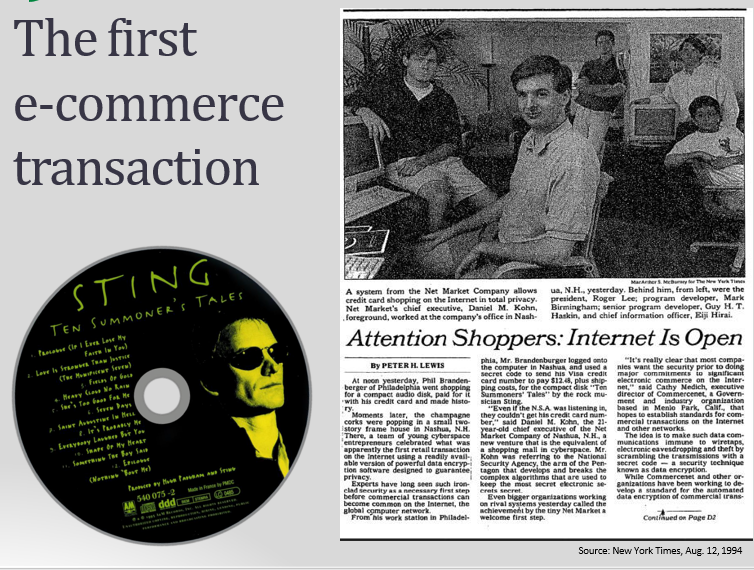E-Commerce
E-Commerce JSI co-convenors announce capacity building support
The co-convenors of the Joint Statement Initiative (JSI) on E-Commerce, Australia, Japan and Singapore, together with Switzerland, are pleased to announce the launch of the E-Commerce Capacity Building Framework (Framework). The Framework will provide training and assistance to strengthen digital inclusion and help developing and least developed country (LDC) Members take advantage of the opportunities presented by digital trade.
The Framework will bring together a wide range of capacity building efforts to support developing and LDC Members’ participation in the E-Commerce JSI and to harness the opportunity of digital trade. Available modalities include:
1. A pilot programme under the World Bank Umbrella Facility for Trade
- Australia and Switzerland will contribute funding to initiate the Digital Advisory and Trade Assistance Fund (DATA Fund). The DATA Fund is a pilot programme managed by the World Bank as part of the Umbrella Facility for Trade and open to all developing countries and LDCs members of the World Bank. The DATA Fund will help countries adopt policies and regulations that enhance trust in digital markets, make it easier to do business online, and increase transparency and competition in digital transactions. It will also support capacity building through specialised training for policymakers, including to promote a sound understanding of the principles underlying the E-Commerce JSI so that they can best participate in the negotiations. The World Bank will conduct outreach and scoping activities for the pilot programme in 2022.
2. Additional Support for Digital Capacity Building
- Japan International Cooperation Agency (JICA) aims to contribute to free and secure digitization. As an example, JICA implements projects on capacity building for cyber security for several government agencies and related organizations. Japan External Trade Organization (JETRO) has also launched a business platform, “J-Bridge”, which aims to facilitate collaboration between Japanese companies and overseas start-ups/MSMEs, including in developing countries. With a particular focus on Southeast Asia, Southwest Asia and Africa regions, JETRO aims to facilitate collaboration through cross-border open innovation and digital transformation (DX) to help create new business solutions. Further information about JETRO is available at https://www.jetro.go.jp/en/j-bridge.html.
- Through the Singapore-WTO Third Country Training Programmes (TCTP), Singapore will collaborate with the WTO Secretariat to provide e-commerce-related programmes to support developing Members’ participation in the JSI negotiations on trade-related aspects of e-commerce. The Singapore-WTO TCTP is a collaboration among the Singapore Cooperation Programme (SCP), Ministry of Trade and Industry and the WTO to share experience and support the implementation of best practices that enable developing and LDC Members to leverage on e-commerce to boost economic growth. Future activities of the programme could include partnerships with international organisations and the private sector, to enhance cross-sectoral collaboration with governments of developing and LDC Members.
The co-convenors recognise that while the digital economy offers benefits for all, including by reducing trade costs, improving productivity, and increasing access to and participation in global markets, developing and LDC Members face barriers in achieving these aims.
“Inclusion is a core principle of the E-Commerce JSI,” said Australian Ambassador George Mina. “Supporting developing and LDC Members to participate fully in the negotiations, and share in the benefits of digital trade, will benefit all members. We are taking a proactive approach to ensure that support mechanisms are in place for countries prior to the conclusion of negotiations to facilitate a high standard outcome.”
Japanese Ambassador YAMAZAKI Kazuyuki said “We are committed to supporting capacity building in developing and LDC Members to achieve an inclusive digital economy. Digital is a key driver of inclusive growth in the global economy and the foundation of people’s livelihoods and employment, and digital transformation contributes to solving local social challenges. We will continue to focus on the challenges faced by governments and MSMEs in developing and LDC Members, and to contribute to ensuring trust in digital trade and the realization of digital transformation.”
Singapore Ambassador Tan Hung Seng said “The pandemic has accelerated the growth of the digital economy. This can bring immense benefits to both large and small businesses, workers and consumers. It is important that we continue collaborating with industry to support countries which are less digitally advanced to build robust global digital infrastructures, expand market access for small companies, and promote a more inclusive global digital economy.”
Ambassador Dominique Paravicini, Head of Economic Cooperation and Development at the Swiss State Secretariat for Economic Affairs (SECO) said: “Trade is a key motor for economic growth and e-commerce can make trade more inclusive. Realizing the potentials of digital trade requires however good regulatory framework conditions. The DATA Fund will be instrumental to support developing countries in shaping policies that create a conductive environment for digital trade for the benefit of people and businesses. In its new foreign economic policy strategy, integrating the digital economy has been defined as a strategic area of action for Switzerland. With our contribution to DATA Fund we want to give developing countries a chance to come on board.”
The overarching objective of the E-Commerce JSI – to develop the first set of global digital trade rules – will help promote growth of the digital economy and increase digital inclusion, with potential benefits for women and under-represented groups.
The Ministerial Joint Statement on E-Commerce in 2019 released on the sidelines of the World Economic Forum (WEF) Annual Meeting in Davos highlighted the JSI would “take into account the unique opportunities and challenges faced by Members, including developing and LDC Members, as well as by micro, small and medium sized enterprises (MSMEs), in relation to electronic commerce.”
MSMEs tend to employ the poorer, more vulnerable segments of society such as young people and women in developing countries. The Framework will be geared towards supporting women and MSMEs to engage with and benefit from digital trade.
The co-convenors will continue to provide further detail on the programmes available under the E-Commerce Capacity Building Framework and welcome other Members contributing to the Framework.





